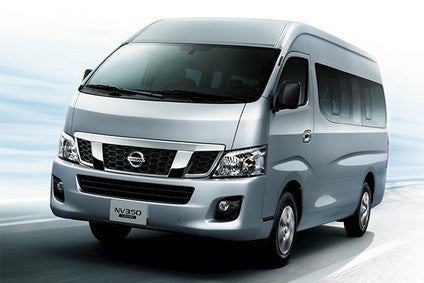
The Renault-Nissan Alliance and Daimler enjoy a long-term and stable future, and all of their shared projects remain on track, the companies’ CEOs said in their annual media update at the Paris show.
Renault-Nissan and Daimler launched their partnership in 2010. The scope of the original collaboration in 2010 was limited to three projects primarily in Europe. The combined portfolio has since quadrupled to 12 projects in Europe, Asia and North America.

Discover B2B Marketing That Performs
Combine business intelligence and editorial excellence to reach engaged professionals across 36 leading media platforms.
“The global scale of our projects ensures that this collaboration will continue to grow, and we expect to remain partners for the long run,” said Renault-Nissan CEO and chairman Carlos Ghosn.
“This partnership has accelerated the time-to-market for significant vehicle launches and has been an obvious strategic advantage for Renault and Nissan. We remain confident about our relationship for the foreseeable future.”
“Since its start in 2010, this cooperation has delivered what it has promised, and even more. And that’s how we will continue to work together in the future – with joint projects that establish a win-win situation for all partners involved and create value for our customers worldwide. This is definitely a track record to be continued,” said Daimler chairman Dieter Zetsche.
The Alliance and Daimler are launching their first vehicles co-developed from scratch this autumn: the redesigned Renault Twingo and Smart Fortwo and Forfour. The Twingo went on sale in Europe in September while the Smarts launch in November. The city cars are built on a jointly developed rear wheel drive architecture which involved teams from both sides working closely together over the last four years.
The Smart Fortwo is built at the Hambach plant in France while the Twingo and Forfour – which revives a nameplate dormant for about a decade – are produced at Renault’s plant in Novo Mesto, Slovenia.
Project portfolio expanding
In June 2014, Nissan and Daimler announced plans to jointly develop premium compact vehicles and to jointly manufacture them in Mexico.
Construction of a jointly-owned facility in Aguascalientes, next to an existing Nissan plant, will begin in early 2015. Production will begin in 2017 with Infiniti models. Production of Mercedes-Benz vehicles will follow in 2018. When fully ramped up, the Mexico facility will have production capacity of 300,000 units per year.
The premium compact vehicles will also be produced at other Daimler and Nissan plants around the world, including Europe and China.
Meanwhile, the two companies continue to supply each other with powertrains. In September, Renault began supplying 1.6-litre diesel engines for both the Mercedes C-Class and Vito van. Renault is also supplying a one-litre, three-cylinder naturally aspirated petrol engine and a 900cc turbocharged, I3 petrol unit for the Forfour and Fortwo.
Last June, joint production of a two-litre, turbocharged I4 petrol engine began at a newly established Nissan and Daimler powertrain facility in Decherd, Tennessee, USA. The engines will initially be used in European versions of the Infiniti Q50 sports sedan and the Mercedes-Benz C-Class. The new facility will have installed capacity of 250,000 units per year, once fully operational.
In the van segment, Daimler’s Mitsubishi Fuso Truck and Bus Corporation (MFTBC) and Nissan Motor have just signed a contract for the supply of finished commercial vans for export.
Under the contract, Nissan will supply its NV350 Urvan (GVW: 3.5 tons) commercial van to Mitsubishi Fuso which will sell it as the Canter Van in the Middle East starting this year.
The final agreement comes a year after the two companies signed a basic agreement on 11 September, 2013.






